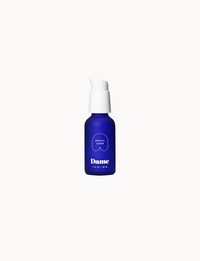Alexandra Fine, Credentialed Sexologist, M. Psych | Written by Dame
The Cleavers, the Waltons, the Bradys, the Huxtables, the Tanners.
Lots of TV families could solve just about any problem with some good old-fashioned, heartfelt discussion. The last thing you’d visualize is the parents getting mad enough at each other to have a knock-down, drag-out fight.
Then there are the Bundys, the Bluths, the Sopranos, the Conners, the Whites. It’s not difficult to imagine those husbands and wives going at each other even more often than we saw on-screen.
In “perfect” relationships like Ward and June’s or Cliff and Clare’s, couples never have a serious argument so there’d never be a reason for makeup sex. But most peoples’ relationships are probably more like Peg and Al’s or Dan and Roseanne’s – with semi-regular, big-time blowups.
And you’d have to believe that makeup sex was a relatively common occurrence at the Bundy and Conner homes, just as it is for many real-life couples.
Makeup sex can be tricky, since the emotions that are involved are very different than those felt during “planned” lovemaking, spontaneous sex or a no-strings hookup. It can feel exhilarating, disappointing, or just plain weird. It’s also loaded with trip wires, which can easily trigger new emotional explosions, or even destroy a relationship.
Here’s everything you need to know about the danger zone.
Defining Makeup Sex
Many people have had makeup sex without even realizing it; others confuse it with breakup sex. So before discussing the potential relationship problems it can cause, it makes sense to clarify exactly what we’re talking about.
In a nutshell, makeup sex is the sex that may immediately follow a huge fight between two partners in a relationship. If you’ve ever had a romantic conflict, a heated argument or a screaming match (or worse) with your boo – and found yourself in bed with them a few minutes later – you’ve had makeup sex.
Intent is the big difference between makeup and breakup sex. If one or both of you are going to be walking out the door for good, a final bedroom romp for old time’s sake is breakup sex. If you have no immediate plans to end the relationship after the deed is done, though – that’s makeup sex.
Here’s the biggest problem with makeup sex: if the issues that caused your blowup haven’t been resolved, they’ll just rear their ugly heads again. And if the issues are deep-rooted ones, the fighting/makeup sex cycle may continue until the relationship is permanently destroyed.
Needless to say, not every couple ends huge fights by having make-up sex. Many opt for sulking, the silent treatment, or in the best-case scenario, an actual conversation aimed at resolving their differences.
However, makeup sex is much more common than you might expect.
What Leads People to Have Makeup Sex?
Arguments can’t go on forever. Anger and resentment can disappear over time or last forever. However, there’s a limit to how long two people can actively argue, scream or fight. Something has to happen next. Why would it be sex? There are several possible explanations.
Arousal Transfer
Psychologists and sexologists have a term that can help explain makeup sex: arousal transfer. (Some call it excitation transfer.)
Arguments or fights stimulate intense emotional and physical responses. Adrenaline flows, heart rate and blood flow increase, and stress hormones like cortisol are released. In short, your senses are aroused and your body responds.
When the yelling subsides, the body is still in an aroused state. Studies have shown that it’s natural for people to transfer that arousal or excitement to “something else,” and that “something else” is often sex. A classic experiment conducted nearly fifty years ago illustrates the concept well.
Groups of penis-havers were placed on two different bridges. One bridge was a scary, rickety suspension bridge; the other was a solid, stable one. The participants were then approached by an attractive vulva-haver and asked to fill out a questionnaire. It turns out that the people on the fear-inducing bridge were much more likely to be sexually attracted to the survey-taker than those on the stable bridge.
Why? The arousal caused by anxiety was transferred, becoming sexual arousal.
Many experts believe the same process occurs when couples fight. The sensory arousal and excitement initially triggered by fighting is transferred into sexual arousal and excitement – and makeup sex is the natural result.
The Biological Attachment System
Couples in a healthy (or relatively healthy) relationship form a strong biological attachment, in addition to and separate from the sexual attraction and sexual desire they experience. It’s one of the major reasons that partners crave physical intimacy, not just sex.
A nasty or prolonged battle can threaten that attachment. And even though a less-serious argument probably won’t destroy the relationship, it can still feel like a threat in the heat of the moment. In both cases fighting provokes strong emotions, primarily the fear of impending loss.
That’s when the biological attachment system kicks in. It encourages you to stop arguing and bond with your partner, whether it’s with a good cuddle, satisfying foreplay or good sex.
The physiological process by which this happens isn’t fully understood. However, it appears that the increased levels of testosterone, adrenaline, dopamine and cortisol (the “fight or flight” hormone) released during stressful disagreements play important roles.
Most of those hormones are known to increase sexual arousal, which could explain the progression from fighting to makeup sex. Meanwhile, the oxytocin released during sexual activity actually lowers high cortisol levels, reducing stress. That’s another reason why partners may be motivated to have makeup sex; it’s a way to substitute intimacy for anxiety and stress.
Sex as a Pressure Valve
Here’s a related possibility. A temporary cessation of hostilities probably won’t resolve the underlying issues that lead to arguments in a relationship. It’s simply an agreement to leave the complicated process of problem solving for another time. However, the combatants are still likely to feel residual frustration, tension or anger.
Those emotions, of course, cause a great deal of stress – and as we’ve already established, sex can be a very effective stress reliever. This type of “angry sex” isn’t a solid foundation for a couple’s sex life, nor is it a healthy way to deal with disagreements in a relationship. At times, though, it can function as a pressure valve, temporarily smoothing things over so you can live to fight another day. (And as you may know from experience, angry sex can be intense and even briefly liberating.)
Sealing the Deal
The ideal approach to serious problems in a relationship is to discuss the issues and come to amicable, mutually-acceptable solutions. And what better way is there to celebrate than with makeup sex?
Pros and Cons of Makeup Sex
There’s certainly a school of thought that says “there are no cons to having sex.”
That may be true when the sex is consensual, and when there’s no concern about the long-term effect that the sex will have on a relationship.
When two people have been together for a while, though, there’s a lot more at stake. Makeup sex after a big fight doesn’t always make things better. It can make things much, much worse.
Potential Cons
- If the problems that led to the conflict haven’t been resolved, sex is just a temporary fix. The relationship can get deteriorate further if the underlying disagreement or “bad behavior” remains unaddressed.
- If partners have makeup sex without solving the problems that led to it, residual resentment or anger may prevent one or both partners from performing – and unsatisfying sex can worsen the relationship even further, instead of improving it.
- One partner may interpret makeup sex to mean that the underlying problem is “over,” even though the other may view the hookup as nothing more than a time out. That can lead to further misunderstandings and conflict.
- It’s possible to become addicted to makeup sex, counting on it to supply the “juice” in a troubled or failing relationship.
- Sadly, some people deliberately perpetuate an argument/sex cycle to maintain control in their relationship, using it as a form of manipulation or abuse.
Potential Pros
- If an argument is going nowhere and frustration is growing, makeup sex can allow both partners to temporarily put the issues aside and address them once they’re in a better mood.
- Sex has the potential to – at least partially – restore a level of closeness and intimacy. That may be enough to remind both partners that what they have built together is more important than whatever it was that they were fighting about.
- If makeup sex follows a satisfactory resolution of the underlying problem(s), sex can reinforce the bond between the partners.
- Well, it is sex.
One study published in the Archives of Sexual Behavior sums things up pretty well, even if it does understate the potential (and temporary) excitement of makeup sex:
“Despite the fact that sex co-occurring with conflict…was less enjoyable, it partially reduced the negative effect of conflict on both spouses’ daily relationship quality. (However) the extent to which sex and conflict co-occurred was unassociated with intimates’ changes in marital satisfaction 6 months later….although (makeup) sex is less enjoyable, it temporarily buffers relationship quality in that moment.”
In other words, makeup sex is a band-aid and not a cure.
What is the cure?
Makeup Sex Signals the Need for Better Communication
The first step in healing a relationship, and making makeup sex no longer necessary, is to admit that there are big problems which require attention.
At least initially, each person may blame the other for whatever triggered the most recent argument or fight. Even if one partner really is causing most (or all) of the issues, the other probably won’t see it that way. It sounds simplistic to say that the key to breaking the impasse is better communication. But it’s also true, for two reasons. One of them may be surprising.
The first reason is obvious. Calm and honest discussion of the relationship’s root problems may lead to greater understanding on both sides. Hopefully, that allows the partners to compromise when necessary, and apologize when appropriate. The process will ideally let each person move past the issues and heal any emotional damage they’ve caused or experienced. The best-case scenario will see bonds strengthened between the two partners, making their relationship deeper and more durable.
Here’s the other reason why communication is essential: a better understanding of the situation allows each partner to determine if they’ve just hit a rough stretch, or if they’re in a toxic relationship that’s beyond repair.
That may sound harsh. However, toxicity is a very real possibility when regular arguments and makeup sex, instead of honest communication and caring sex, become staples in a relationship. A reliance on the fireworks of makeup sex is as much a sign of a toxic relationship as are verbal abuse, controlling behavior and overall disrespect for a partner’s needs and desires.
To be clear, not all troubled relationships are toxic. Most couples go through stressful or difficult times, and therapy may help if a reset is needed. But nationally-recognized therapist Robert Taibbi writes in Psychology Today, that counseling may not even be needed. An honest and adult discussion can often allow partners to recalibrate their relationship on their own, ending the fighting/makeup sex cycle and restoring sexual wellness to their relationship.
Unfortunately, honest and adult discussion may not be enough to fix a toxic partnership in which makeup sex is a feature, not a bug. Many therapists suggest that the first step is for partners to take a break from each other for a few weeks, spending time by themselves (and perhaps with their vibrators or other sex toys) so they can take a personal inventory.
Answering questions like “Where and when did things start to go wrong? How much was I to blame? What behaviors can I change?” are part of the process. But just as important are questions like “How much do I really miss my partner? Do I still love them? Is this relationship worth saving?”
Focusing on those important questions, rather than the arguments that led to the last round of fighting and makeup sex, allows each partner to understand how valuable – or toxic – the relationship really is.
And if they each decide that their relationship is worth salvaging, they may finally be ready to accept their own failings, make plans to correct them, and engage in a truly honest discussion aimed at putting the relationship on less-toxic ground – and putting makeup sex in the past.





















































1 comment
This team of professional hackers at: HACKSPEED24@ GMAILCOM, specializes in providing reliable and efficient software hacking services to meet all your hacking needs. Whether you’re looking to keep tabs on your spouse, kids, on your home, office, or any other space, HACKSPEED24 team of experts is here to help. With this team you can trust that your security and peace of mind are their top priorities. Their user-friendly interface and advanced features make monitoring easy and convenient for everyone. Don’t wait any longer to secure your valuables and loved ones – book with them today and experience the difference for yourself. Join countless satisfied customers just as myself who have already chosen this team as their go-to hacking solution. They also specialize in recovering All lost bitcoin, lite coin, Ethereum wallets from any dubious crypto investment platform. Just send an Email to: HACKSPEED24@ GMAILCOM, they’re legit and reliable.